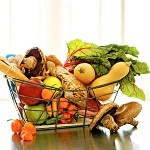 The medical fraternity has known all along what the general public is waking up to now- that low potassium facilitates the occurrence of hypertension.
The medical fraternity has known all along what the general public is waking up to now- that low potassium facilitates the occurrence of hypertension.
According to Frank K. Wood, writer of Natural Cures and General Medicines That Work Better Than Dangerous Drugs or Risky Surgery, scientists started studying the effects of potassium on high blood pressure as early as 1928. While most folks know that high sodium contributes to hypertension, it is now a well-established and widely accepted fact that low potassium too contributes to high blood pressure. The reason for this lies in the fact that potassium negates the effect of sodium and helps in normalizing the blood pressure.
Potassium is highly successful in lowering blood pressure. In fact, a recent study shows that potassium, even when present in normal quantities, can lower one’s blood pressure.
Dr. Stephen T. Sinatra wrote in A Cardiologist’s Prescription for Optimum Health that potassium is absolutely essential for the proper functioning of cell membranes, cells, and nerves. He also mentioned that one of the biggest causes of cardiac arrhythmia is low potassium.
The New Encyclopedia of Vitamins, Minerals, Supplements, and Herbs also acknowledges the role potassium plays in regulating the blood pressure. In this book, Nicola Reavley points that low potassium puts people at increased risk to hypertension and stroke. She also pointed that importance should be given to the consumption of potassium-rich foods, as a typical Western diet contains low potassium as compared to sodium. Reavley also stated that the ratio of potassium to sodium in the diet should be adequate, otherwise the chances of hypertension increase substantially.
Foods those are rich in potassium
Some of the foods that are rich in potassium and thus should be an integral part of a high blood pressure patient’s diet are: apple, baked potatoes, avocados, acorn squash, dried figs, bananas, kidney beans, oranges, carrots, broccoli, prunes, lima beans, squash, spinach, prunes, watermelon, cantaloupe, and dried apricots.
In addition to the above foods, potassium supplements are also available. Though potassium supplementation is generally not required, patients who are on diuretics or laxatives or have excessive diarrhea may need extra potassium.
Furthermore, to control blood pressure, eat wholesome foods and avoid the intake of processed foods which typically have high sodium content. Supplement a good diet with regular exercise to manage blood pressure efficiently. You don’t need to hit the gym or hire a professional trainer; just use these high blood pressure exercises to control your blood pressure.
EL331015

 Multiple Sclerosis
Multiple Sclerosis Banishing Bronchitis
Banishing Bronchitis Gum Disease Gone
Gum Disease Gone Overcoming Onychomycosis
Overcoming Onychomycosis Neuropathy No More
Neuropathy No More The Prostate Protocol
The Prostate Protocol Brain Booster
Brain Booster
 Ironbound
Ironbound
 Solution for Shingles
Solution for Shingles
 The Bone Density Solution
The Bone Density Solution
 The Ultimate Healing Protocol
The Ultimate Healing Protocol
 The Parkinson's Protocol
The Parkinson's Protocol
 The Chronic Kidney Disease Solution
The Chronic Kidney Disease Solution
 Overthrowing Anxiety
Overthrowing Anxiety The Fatty Liver Solution
The Fatty Liver Solution The Hypothyroidism Solution
The Hypothyroidism Solution
 The End of Gout
The End of Gout The Blood Pressure Program
The Blood Pressure Program
 The Oxigized Cholesterol Strategy
The Oxigized Cholesterol Strategy
 Stop Snoring And Sleep Apnea Program
Stop Snoring And Sleep Apnea Program
 The Arthritis Strategy
The Arthritis Strategy The Vertigo & Dizziness Program
The Vertigo & Dizziness Program The 3-Step Diabetes Strategy
The 3-Step Diabetes Strategy Hemorrhoids Healing Protocol
Hemorrhoids Healing Protocol The Erectile Dysfunction Master
The Erectile Dysfunction Master Weight Loss Breeze
Weight Loss Breeze The IBS Program
The IBS Program The Insomnia Program
The Insomnia Program The Migraine and Headache Program
The Migraine and Headache Program The Neck Pain Solution
The Neck Pain Solution The Menopause Solution
The Menopause Solution The Ejaculation Master
The Ejaculation Master The TMJ Solution
The TMJ Solution The Acid Reflux Solution
The Acid Reflux Solution The Fibromyalgia Solution
The Fibromyalgia Solution The Psoriasis Strategy
The Psoriasis Strategy